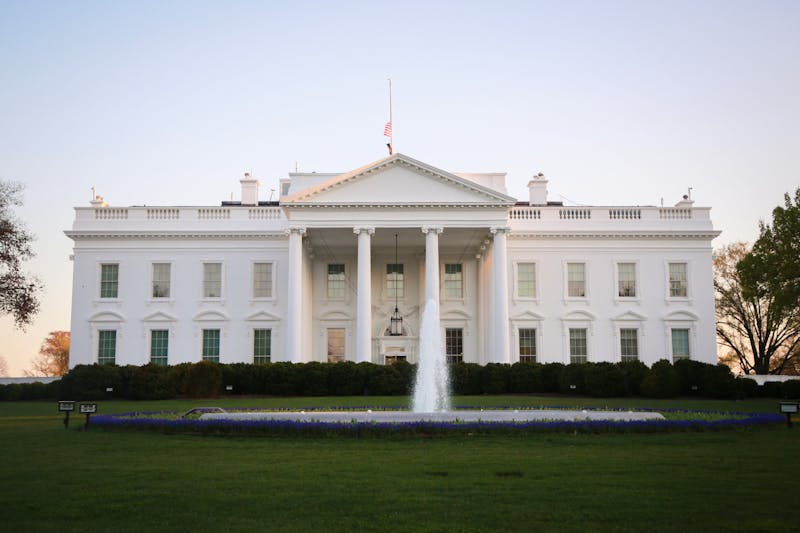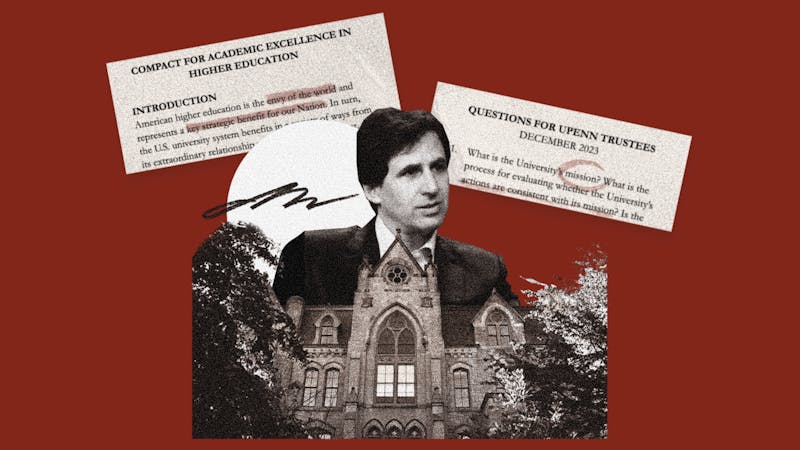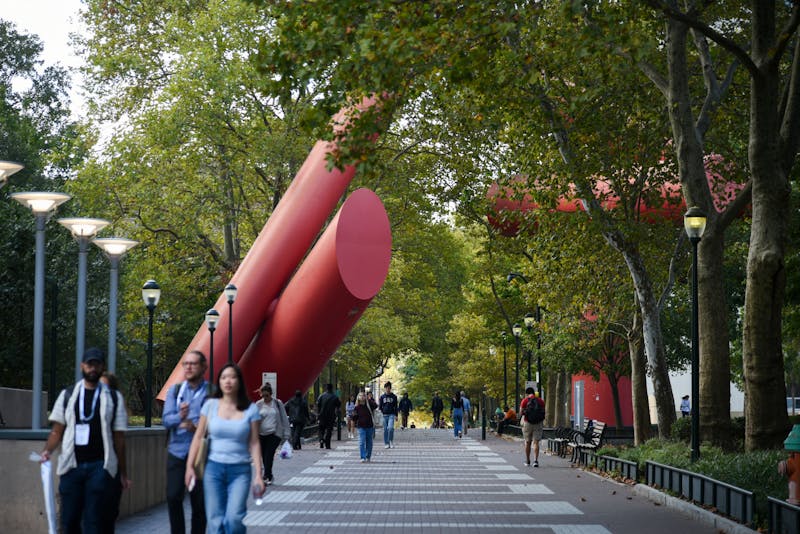We celebrate Martin Luther King Day annually, but the Olympics come only every four years. Independence Day is observed each July 4th, but mercifully, presidential elections happen only every fourth year. The distinction between "annual" and "quadrennial" is really quite simple. So why is the University having such trouble with it? In 1977, University officials entered into an agreement with the City of Philadelphia. In exchange for certain parcels of city-owned property, the University promised, "to establish and forever maintain at least 125 four year full-tuition scholarships, or their equivalent, in any of the Departments of the University, to be awarded annually by the Mayor of Philadelphia to deserving students from all of the Schools of the City . . . [emphasis added]." I'm no legal scholar or mathematician, but I can handle a dictionary and simple sums: 125 four year scholarships awarded annually means that there should be 500 Mayor's Scholars on campus in any given year: 125 in each class. The agreement clearly doesn't mean 125 scholarships should be awarded every four years. Nor does it mean that 31.25 scholarships should be awarded each year for a total of 125 in four years. Still, the University has problems with simple addition (despite the fact that when it comes to faculty salaries, the administration has no problem with subtraction). In 1990-91, there were only 161 Mayor's Scholars on campus, less than a third of the number the University agreed to. The University argues its duty has been met in this matter, and then some. After all, 161 is 36 more than 125, the total number the University has been committed to providing. But it's 340 fewer than the University promised it would give. That's why the Black Student League and the African-American Association of Faculty, Staff, and Administrators have joined the Public Interest Law Center of Philadelphia as plaintiffs in a suit to be filed in Philadelphia's Court of Common Pleas. BSL President Jessica Dixon and AAA Tri-chair James Gray note that the agreement does not specify minority scholarships. "There are special programs in the area for minority [college recruitment]." Gray said. "[This agreement] is for the citizens of Philadelphia. But minorities would make up a clear and obvious representation." Dixon points out that the University's management of the Mayor's Scholarships isn't only hurting current Penn students from Philadelphia high schools who weren't given the awards. She identifies two other groups who have been affected by the loss of these scholarships: local high school students who are not able to consider Penn because of the cost, and college students at other area universities who would have considered Penn if they had known about the Mayor's Scholarship program. "We're basically taking a stand on behalf of students here and students who could be here," Dixon told me. But limited advertising not providing the stipulated number of awards, isn't the total extent of the University's mishandling of the Mayor's Scholarships. Even the students who were awarded the scholarships have been hurt by the University's misinterpretation of the 1977 agreement. It seems the University used the same reasoning by which 125 x 4 = 161 to figure a definition for "full-tuition scholarships, or their equivalent." According to those who have received the scholarship, the amount given varies but is always considerably less than $15,894, the cost of full tuition at Penn this year. Recipients of the Mayor's Scholarship complete the Financial Aid Form, just like all students seeking need-based financial aid. But rather than awarding the amount of full tuition to recipients of the Mayor's Scholarship, the University often awards only the amount the recipient's family would be required to contribute according to the Student Aid Report based on the information in the FAF. For example, a needy student who fills out the FAF may learn that she will receive state and federal grants, but that she is also expected to take out several thousand dollars in loans. Her family, which has modest financial resources, is expected to contribute $2000. If she is awarded the Mayor's Scholarship, it in effect waives her family contribution, and she still must take out the loans. It's pretty obvious that such a Mayor's Scholarship is worth $2000, not "full tuition." None of this is news to the University. The administration has known for over a year that people were questioning their interpretation of the agreement and have refused during that time to negotiate in good faith. University administrators remain adamant that there is nothing inappropriate in their interpretation of the Mayor's Scholarship agreement. President Hackney says he met with Mayor Goode this summer, and that the city agrees with the university, "that we are meeting our commitments." Sure, Mayor Goode would say that; the city's looking for a $10 million loan from the University, and the mayor will soon need a job in the private sector. Hackney also says the lawsuit is "without merit." Interesting choice of words. It's now up to the courts to decide this issue on the content of its legal character, and not on the color of the money involved. Elizabeth Hunt is a doctoral candidate in History and Sociology of Science from Bloomington, Indiana. One Man's Meat appears alternate Wednesdays.
The Daily Pennsylvanian is an independent, student-run newspaper. Please consider making a donation to support the coverage that shapes the University. Your generosity ensures a future of strong journalism at Penn.
DonatePlease note All comments are eligible for publication in The Daily Pennsylvanian.







